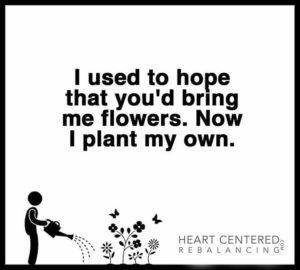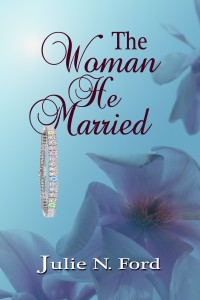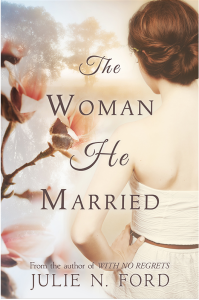Throughout my tenure as a novelist, I’ve often described my love affair with writing as co-dependent.
With the exception that as an author I committed my unconditional love and devotion to a craft and not a person, the decision to become a novelist often felt like I’d unwittingly entered into a dysfunctional relationship. A love affair with creativity that swung from the extreme highs of an encompassing sense of wellbeing, to lows that often felt quite pointed and, for lack of a better word, abusive. The confusion of it all consistently left me feeling as though indulging in my passion kept me trapped on a never-ending roller coaster of warring emotions.
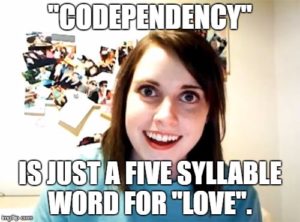
At various points along the way I would exclaim that I was tired of it all and would never write another novel! Only under all that disillusionment, whisperings of the excitement accompanying the development of a story would grow to a deafening roar, and a false hope of sorts would settle in. Then I’d start to believe that things would be different—better somehow—the next time around.
Ultimately, and as if I didn’t have a say in the matter, the drafting process would begin again.
Needless to say, the extreme highs and lows that accompany an addiction to writing can be rather emotionally and physically, not to mention financially, taxing.
For this reason and those listed below, I have decided it’s time to put an end to this unhealthy cycle of elation-to-misery and move on to a life’s pursuit that will theoretically provide me more emotional and financial stability. But in order to close this metaphoric chapter on my life, I feel the need to complete one last writing project, one that spells out the how and why I came to this most difficult and heartrending decision.
In this final group of five blog installments you’ll find a compilation of my opinions and experiences. The opinions and experiences of other authors may, and likely will, differ considerably. For argument’s sake, let’s stipulate that all authors travel unique and independent journeys.
This is mine.
Reason Number One: I didn’t manage my career correctly.
Mistake One: Neglecting to heed advice.
When I first began writing, I had no idea what I was doing. All I knew was that the story I had written was the most amazing creation I’d ever endeavored. I had it professionally edited, submitted it to contests, and solicited poor unassuming family and friends to read it. I revised it dozens and dozens of times. Though in my mind there was no way my novel could be anything short of sheer brilliance, after twenty or so rejections from agents and publishers, I decided to take a break and start working on a second novel. All the while, I never gave up on seeing the first published.
Along the way I continually received and then promptly ignored the same advice.
DON’T PUBLISH YOUR FIRST NOVEL!
“Why shouldn’t I?” I would ask, then silently add, when it is such an awe-inspiring work of art?
BECAUSE YOU’LL REGRET IT!
When the second novel was completed and edited, I was able to find a publisher who accepted it. And then, because the first was a prequel to the second, this publisher went ahead and agreed to publish book one as well.
Ah-hah! I had proven everyone wrong. There WAS nothing wrong with publishing your first novel!
Or was there?
Looking back, I’m more than mortified by the discombobulated mess running rampant between the covers of that first novel. Years later, and with five full-length novels under my belt, it’s unfathomable—even to me—to consider that the same person who wrote the fifth also wrote that first abomination. That’s how much I can see I’ve improved. It horrifies me to this day that anyone—and I mean anyone at all—may have read my initial work and vowed never to pick up another of my “crappy” books.
(Don’t read these!)
And what’s worse, the second wasn’t much better.
If I could do it all again, I would take the advice of more seasoned authors and then some. I would put the first two novels on the shelf. Then after getting a few more books under my proverbial belt, go back and take another look at them with new, more experienced eyes.
In the end, I suppose I was lucky. My contract on the first two was only for three years. Once I received my rights back, I was able to rewrite the stories, make them more presentable, and publish them myself. Yet still, the first editions are out there, and the fact that I can’t round them all up and have them destroyed is an unfortunate reality I will forever have to live with.
(Read these!)
Career Mistake Two: Switching genres.
At first I didn’t know exactly what genre I wanted to focus on. I loved women’s fiction, romantic comedy, and romantic suspense, among others. So I did what any indecisive person does: I wrote one of each. My romantic comedy ended up as a Whitney Award Finalist, prompting an author friend of mine to advise me against switching genres again. She said I should stay with rom/com and build a fan base before branching out.
Of course I didn’t listen and went on to write another novel that was sort of a paranormal suspense, which did exactly what my friend had warned me it would—alienated many of the fans I’d gained with my rom/com. Then I wrote another women’s fiction and disaffected any fans I’d gained with the paranormal suspense.
In my defense, and as a budding author brimming with “brilliant” plot ideas, how was I expected to tap down my enthusiasm to experiment with EVERY genre? After all, patience had never been a virtue to which I’d excelled. But take it from someone who does possess a keen sense of hindsight: I can see now that I should have stuck with the genre (rom/com) that worked best for me and built a strong base of fans before exploring others.
That decision alone would have made the world of difference.
Career Mistake Three: Changing publishers.
With the exception of the first two, I switched publishers with each additional novel. Changing publishers means a change in cover design and editing and thus over-all style, which leads to a change in audience, which more or less equates to my starting from square one—five times over.
No wonder my book sales never gained much traction.
Career Mistake Four: Undervaluing my potential
Chronically terrified of failure, I never really aimed all that high.
Instead, I consistently told myself that I was happy publishing with small presses. Why? Because it didn’t matter if I ever made it big; what mattered was telling my stories—something I honestly continue to believe is true. Only what would have happened if I’d actually sat down and asked myself what I wanted from my writing career? Set some goals? Really thought about what I needed in order to keep going? Seriously pondered on my potential?
Put more effort into mustering a little of that patience?
From the very beginning I should have decided what I wanted, and then followed that dream—full-steam ahead, no-holds-bar, take-no-prisoners, and any other adage that denotes unfettered tenacity. Unfortunately, I did none of the above, and thus must accept the consequences.
Having said all this, I’m not one to shoulder mountains of regret. Life marches forward and in order to live that life to the fullest, I work hard to stay in the present.
My hope in listing these regrets is twofold. First, I wish to help other authors sidestep these possible pitfalls. Second, I feel that in order to truly shake these sarsens of regret from my back, I must voice them before I can knock them off forever and move on.
Reason Number Two: Character Development
For me, developing characters was the most fun! (Second only to plotting, which was also super fun!) Deciding who each character will be and where these fictitious individuals came from, what made them who they are, and how the characters will play off one another, then watching them grow and change along the way was the best part of the conception and writing process.
And the more flawed the character, the better. The more a character could change and grow, the more interesting the story was to write.
However, the average reader doesn’t like truly, realistically flawed characters, or so I found out. If an author deigns to make her or his characters a bit too real or flawed then editors, readers, and critics alike will hate said characters, and by extension the story. Consequently, in order to compete in the market, I was constantly attempting to tap down the personal obstacles my characters had to hurtle. Except no matter how hard I tried to tow that line of acceptability, it never seemed to be enough. No matter how much I softened my characters’ flaws, I got complaints.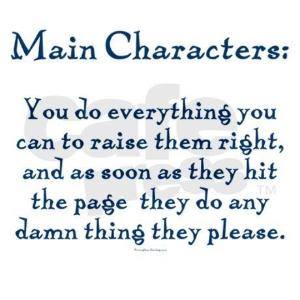
But writing only marginally dysfunctional characters was . . . well, a real yawn-fest. I didn’t want to write stories about folks who merely had plot-driven obstacles to overcome. I wanted to create and write about people with actual faults, individuals who not only had their circumstances to overcome but themselves as well.
As a social worker and therapist, I’ve learned that there is darkness and dysfunction lurking inside of every person occupying this planet. Real live people are very unpredictable, each individual a walking contradiction—a hypocrite if you will—when the occasion suits them. To deny this assertion is the same as denying the essence of humanity itself. We are ALL flawed, deeply and at times disturbingly so. Does this bother me? Not in the least. I love flawed individuals. The internally challenged are often the most interesting and noteworthy people and the most fun to write about.
I guess what readers want is a fantasy, an escape from the reality of their own malicious imperfections. To believe that it is possible to spend a lifetime fighting only benevolent demons. Or maybe they are so determined to deny the dysfunction festering inside them that they refuse to tolerate the existence of those imperfections in others? Maybe they are so deep in denial that they believe people who struggle with tangible flaws bring those struggles upon themselves, that they must be weak or even sinful and that level of inadequacy is not to be tolerated, even when it comes to book characters who are not even real?
Regardless of the psychology behind it, when all was said and done, I was unable, or more likely unwilling, to write those watered-down, fairytale-esque, uninspired characters, the likes of which one can find in most every other mainstream fiction novel. And because of this, writing just seemed to become more and more frustrating and less and less fun.
Reason Number Three: The Book Market is Saturated
First: Read my book!
Once a novel is published, this is the plea that all authors must shout from the online rooftops. And all while literally hundreds of thousands of other authors are doing the same. So how is one to be heard above all the rest? Good question. Blog tours, Facebook ads, Twitter posts, book signings, Amazon promotions, and the list go on, and on, and on . . . But do hours and hours of online promotion, plus presenting along an endless stream of writing conferences, and/or sitting at bookstore signing tables really work? For some, yes, it can, at least a little better than for others like me.
Regardless of the promotional successes or failures, a constant for the vast majority of modern authors is the significant time and monetary costs incurred as a result of pursuing their passion. With the exception of the top maybe 5% of novelists, gone are the days of publisher-sponsored book tours and signings. These days, even New York Times Best Selling authors have to set-up and pay for most of their own promotions.
And the book signings are the very worst. Sitting at a bookstore table while patrons walk right past, pretending not see you is absolute agony. On the flip side, for someone like me, even having an event where lots of adoring fans turn out to show support, is equally as uncomfortable. For the introvert, this part of writing is a catch-22. The introvert in me shrinks from the attention while the author in me shrieks for the masses take notice. Signings were an excruciating two-hearts-one-body experience, a self-imposed agony I plan never to inflict upon myself again.
(I discuss my struggles with social media promotions in Reason Four)
Needless to say, the promo part of getting published was always the most painful part for me. In fact, I would go as far as to say that it was more disheartening and torturous than receiving that gut-wrenching rejection letter/email or even the scathing, brutally honest, admittedly valid, one-star review.
Second: Self-publishing or Self-sabotaging
In MY opinion, the ease and prevalence of self-publishing plus the Kindle Unlimited program may well bankrupt the traditional fiction book market while degrading the profession as a whole.
Here’s why:
First, put together the large majority of Americans who report dreams of becoming a published author to the ease of computer word processing and what you get is a whole lot of publishers and agents who are 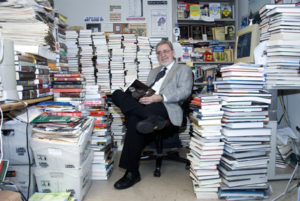 overwhelmed by the sheer number of submissions they receive daily. The result is an ever increasingly improbability of getting a manuscript noticed, much less traditionally published. And what’s worse, the traditional market has become so saturated that many authors are waiting up to two years to see their contracted manuscripts become a published work.
overwhelmed by the sheer number of submissions they receive daily. The result is an ever increasingly improbability of getting a manuscript noticed, much less traditionally published. And what’s worse, the traditional market has become so saturated that many authors are waiting up to two years to see their contracted manuscripts become a published work.
Then Amazon Prime and its Kindle Unlimited program (which allows Prime readers access to books for “free” and pays royalties based on pages read, not units sold) has resulted in a sharp drop in ebook and pbook sales, profits on which the traditional market relies to remain afloat. Additionally, in order for an author or publisher to enroll a book in the KU program, Amazon requires the book be listed exclusively on its site. The result: authors and publishers who chose not to limit their book listings to Amazon are feebly grabbing for what dwindling profits and royalties not already sucked into the KU vortex.
Enter Amazon KDP who has made it incredibly simple for literally anyone to become an “author.” Put together 60,000+ words, slap even a half-baked cover on it, find approximately two-dozen (or a hundred) generous friends who are willing to pen a favorable review, and BAM! instant author.
Aspiring authors no longer have to wait for an agent or publisher to take notice of their work. With a few swift clicks of a mouse she or he can take fate by the reigns and publish themselves. The worst part is that KDP doesn’t require authors to have the content edited properly, nor do they care if the writing possess any amount of literary value, or whether the plot follows a basic story-telling structure, or that it even makes sense. Therefore, the privilege of claiming the title of Author is slowly losing its prestige.
(Not to say that there aren’t many legitimate self-published authors out there. In fact, there are, many of whom have risen to the ranks of the New York Times Best Seller list. As stated above, I, myself have even self-published.)
Add all of the above together and what you get is a fiction book market that is drowning in a pool filled to the brim with an over abundance of choices that are steadily rising and no foreseeable strategy for ebbing the flow. It’s a simple matter of supply and demand. Because of KDP there just are not enough readers out there for the number of books flooding the fiction market. Every. Single. Day. And with that constant influx of new books comes a thinner and thinner disbursement of KU royalties to struggling authors and publishers, making it harder and harder to turn a profit in the fiction book market.
Small presses and literary agencies are feeling the biggest pinch of KU and KDP. After decades of prosperity, many have decided to close their doors. Those that continue to thrive have become SO selective that they 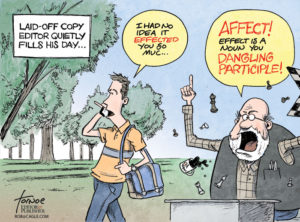 won’t take a chance on a manuscript unless they can deem it a “sure thing.”
won’t take a chance on a manuscript unless they can deem it a “sure thing.”
Given the current state of the market and the backlog clogging the works of traditional publishers, authors have to sprint to keep up, continuously publishing any way they can in order to remain relevant. Therefore, hybrid authors (traditionally published who also self-pub) and solely self-published authors alike are sabotaging themselves and the market as a whole with excessive self-publishing.
And this over abundance of reading options has created a snowball effect of sorts.
Snowball Cycle: Release a novel: sales spike: thousands of other novels hit the market: the work quickly becomes irreverent: the author rushes to publish again: sales spike: thousands more books join the fray: infinity . . .
Publishing in this modern age has become the most vicious treadmill ever conceived.
That’s not to say that authors who publish and self-publish in niche markets aren’t able to do well—some in fact are doing quite well—but those publishers and authors who aren’t so lucky are feeling the financial strains brought on by the ubiquity and simplicity of self-publishing.
I’m getting out of the writing-rat-race but to those of you who are staying in, I would caution against maintaining the status quo for much longer. To preserve the integrity of the fiction writing profession, I would suggest pressuring Amazon to impose a few regulations on self-publishing. Limiting the number of titles a single author (including all pen-names and genres) can self-pub in a year and requiring proof of professional content and line edits are two good places to start.
Reason Number Four: Social Media
I don’t mean to hate on SM. I really do enjoy keeping track of the folks I’m not able to see on a regular bases. But with time I’ve discovered that I’m more of an observer than a participator.
Here’s why:
Disregarding the contrived realities that often cause one’s online friends to feel envious of these falsities, often resulting in depression, plus the nastiness that thunders up and down news feeds everywhere, generally speaking, I’m not a fan of social media. It’s not that I don’t ever have “clever” or compelling thoughts to Tweet, or funny pictures or videos to post, it’s just that I don’t want to spend my time doing so.
 Why would I waste my precious life hours cultivating a cyber world when the real world is all around me? Birds and flowers and sunshine, all things I can see, touch, and feel, not to mention the real live people who occupy my space. Call me old-fashioned, but other than while reading a book or watching a flick, this is where I want to spend my time, where I can physically feel and connect with the environment around me.
Why would I waste my precious life hours cultivating a cyber world when the real world is all around me? Birds and flowers and sunshine, all things I can see, touch, and feel, not to mention the real live people who occupy my space. Call me old-fashioned, but other than while reading a book or watching a flick, this is where I want to spend my time, where I can physically feel and connect with the environment around me.
For promotional reasons, I can see posting reviews or special prices. But for an author to be successful in this modern cyber-age, creating and then maintaining a constant and compelling online persona is an absolute must. In order to sell books, an author has to be willing and able to not only navigate all social media platforms but also to commit a significant amount of time promoting themselves to folks who the author will likely never meet face to face.
The disconnectedness of it all bothers me, and I was never able to gain the comfort with social media necessary to rocket my work to any level of measurable success.
Actively engaging on SM just isn’t something I enjoyed and likely never will.
Reason Number Five: Hard Work With Little Reward
As previously stated, I’m an introvert. With introvertedness also comes many personality traits that extroverts don’t have the privilege of hassling with. The least of which makes for a more intuitive writer while the compulsion to overthink literally every detail results in a longer, more laborious creative process. In other words, it takes an introvert more than twice the time to create a story than it does the extrovert.
Does this mean that introverts are better, more comprehensive writers? Not necessarily. I think whether a reader enjoys a story or not depends more on individual tastes and preferences than anything else.
What being an introvert means for a writer (at least for me) is that it takes a painstakingly long time to write . . . pretty much anything at all. Not one single sentence I have ever written has only been typed once, or even five times. I write, revise, rethink, rewrite, revise, rethink even the most basic of sentences. Then I walk away, and an even more inspired way to state what I’ve just worked hours on will come to me, and I’ll start the process all over again.
It’s almost inconceivable, the ridiculous amount of time I’ve spent working and perfecting each and every novel I’ve written. And it would be one thing if all that creative energy had resulted in stories that readers loved and cherished and told all their friends and family they must run out and purchase.
But alas, it did not.
For the most part, my overall reviews are not horrible, but as stated above, I’m sad to say that none of my books have ever gained any real or even slight notoriety. I have spent years of my life working on books incapable of creating even the mere beginnings of a tiny ripple in the ever-expanding pond of fiction.
Long demoralized sigh . . .
Honestly, if I added up all my royalties, then subtracted the money spent on promotions and then the time consumed at the computer promoting, not to mention writing, I’m running a deficit comparable to that of our nation’s government. No exaggeration.
For years I told myself that writing wasn’t about the money. That I didn’t care about all the nasty reviews because the good outweighed the bad. That I kept writing because I enjoyed it—and honestly for the majority of my tenure as an author I did immensely love what I was doing. But there comes a time when one must consider the sunk cost of doing what they love and seriously determine whether or not their time might be better spent elsewhere.
And time and financial considerations are not the only costs ensued by writers. The interpersonal costs are high as well. Living one’s life half in the real world and half in a fictitious world takes its toll on relationships. Husbands, children, friends, and extended family, along with everyday responsibilities, are often thrown to the backseat and told to keep quiet in order for the author to focus solely on the world of her or his own making. Often times I experienced actual physical pain when my focus was unexpectedly interrupted and forced from my work. Even when I wasn’t at the computer I was writing in my head, at least half of my consciousness exploring my current plot line at all times. Thus, all too often I felt resentful of not only my family but pretty much any obligation that took me out of the world I was devising.
An author doesn’t only need to possess skill, experience, and creativity. Oh, no, that’s only a small part of writing a novel. What makes a person a true author is her or his commitment and willingness to sacrifice whatever necessary to get the job done.
Sadly, I fear that I missed some important moments with my children and husband and neglected friends I could have better connected with.
All abandoned in a past I will never get back, and for a reward that never came.
Conclusion:
After much soul searching along with taking a year to consider what I wanted from life, I have concluded that the emotional, fiscal, and interpersonal price of continuing as an author is too high. I have a master’s degree and live in a whole big world of actual living, breathing people in need of help, leaps and bounds above needing another novel from me, one the majority of them will likely never hear about, much less read.
Am I sad about leaving authordom behind? At first, yes, the thought was beyond heartbreaking. But now that I’ve taken a genuine step back, considered all the pros and cons, I feel confident in my decision. Plus, whenever I see other authors on social media peddling their wares and think, thank The Lord that’s not me, along with an overwhelming sense of relief, I have no lingering doubts about my decision.
It’s truly time to move on.
Writing has been a fun, awe-inspiring rollercoaster of co-dependency that has left me both elated and in tears, and at times fraught with regrets. Yet I continue to feel blessed to have experienced every moment.
But it’s time to seriously consider the sunk cost sustained while writing, turn the page on my life’s pursuits, and begin a whole new chapter.
And when all is said and done, I have five novels, one novella, and an award that I am immensely proud of.
Six arguably beautiful and inspired works that will outlive me, whether anyone condescends to read them again or not.
And so as Tigger profoundly exclaimed: “Ta-ta for now!” and most likely forever.
While I won’t commit to never again. 😉

